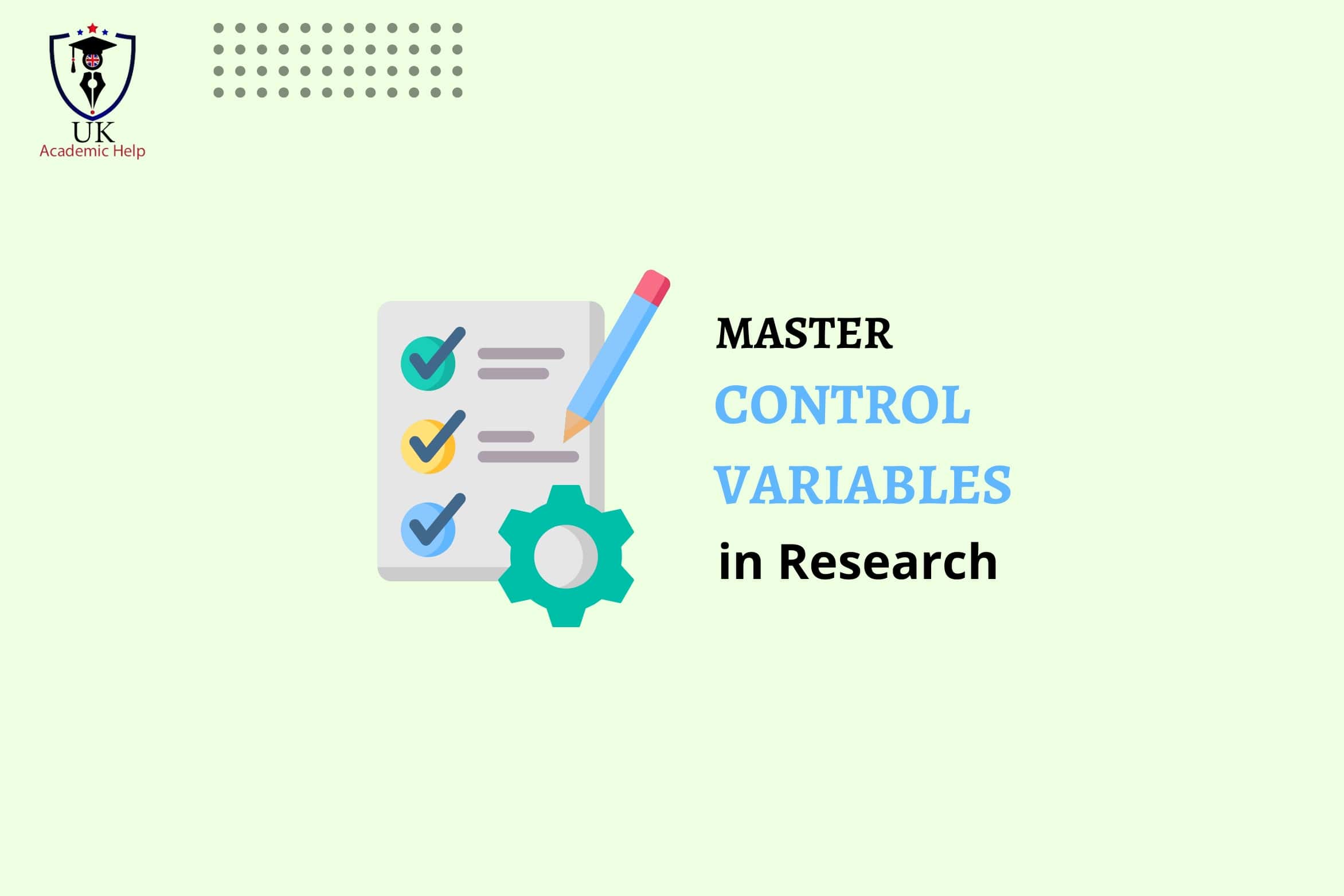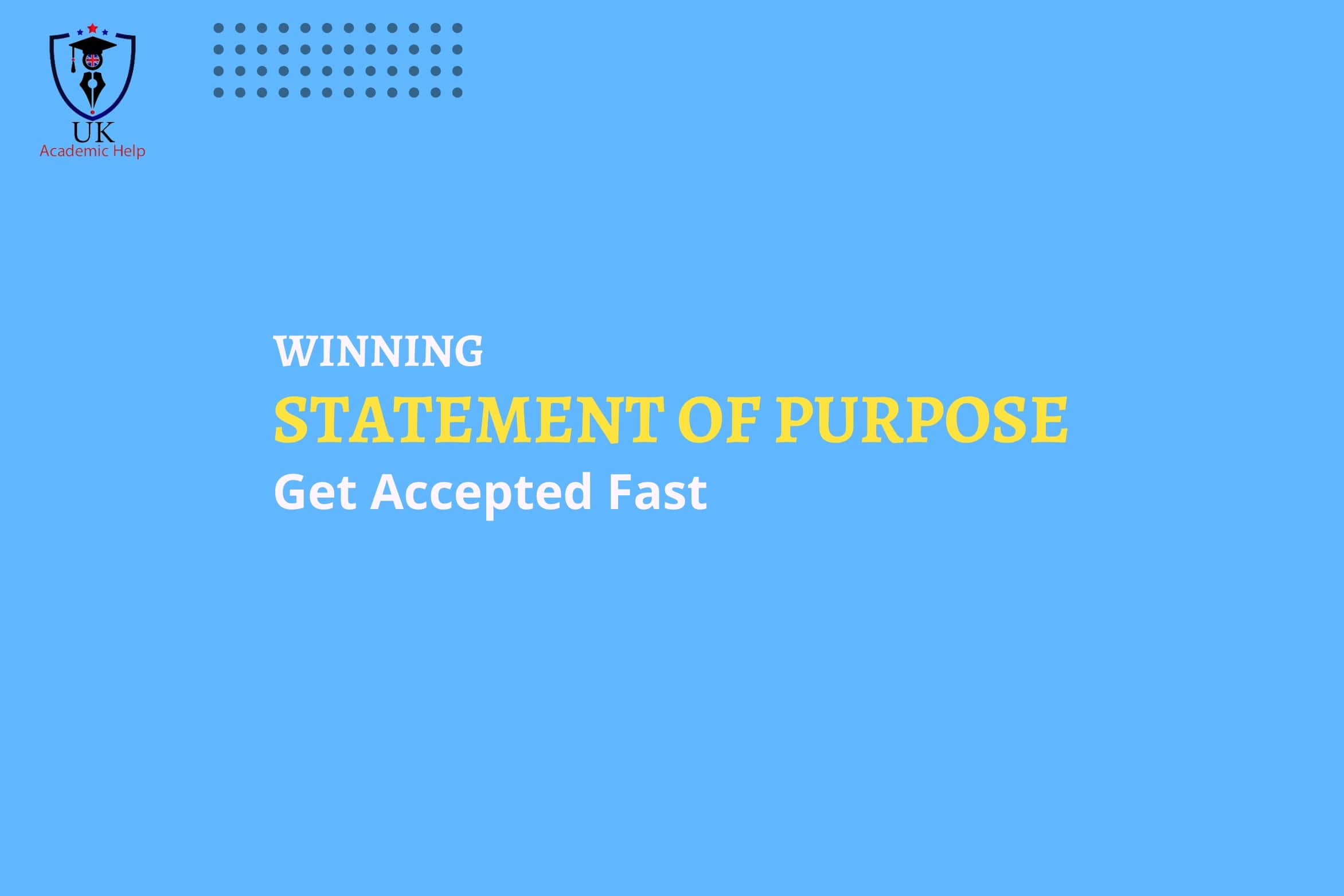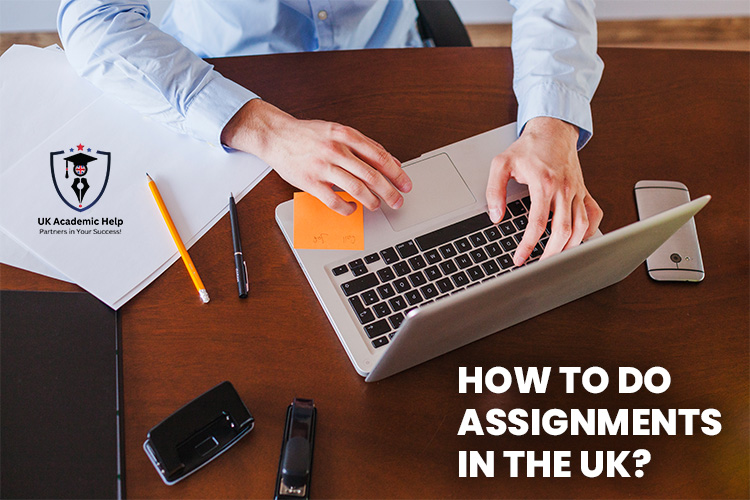Table of Contents
- 1 Introduction to Control Variables in Research
- 2 Explained Clearly
- 3 Difference Between Independent, Dependent, and Control Variables
- 4 Controlled Variables Examples in Academic Studies
- 5 How Control Variables Improve Research Accuracy
- 6 How to Identify and Use Control Variables in a Research Paper
- 7 Statistical Control and Variable Management
- 8 Common Mistakes Students Make with Control Variables
- 9 Expert Help with Research Writing and Methodology
- 10 Conclusion: Mastering Control Variables in Academic Writing
Introduction to Control Variables in Research
When you’re conducting research, especially in fields like psychology, biology, or education, you want your results to reflect the actual impact of the factor you’re studying—not random outside influences. That’s where control variables come in. These are the variables you keep constant to make sure your experiment remains focused and fair.
By managing these constant elements, you improve the overall internal validity of your research. Whether you’re working on a lab experiment or a university assignment, understanding control variables ensures that your conclusions are based on reliable data, not background noise.
Control Variable
A control variable is any element in an experiment that is intentionally kept the same throughout the study. While the independent variable is what you change, and the dependent variable is what you measure, the control variable is everything you hold steady. Think of it as the silent guard keeping your data clean.
For example, if you’re studying how different lighting affects student performance, the temperature of the room should stay the same—that’s your control variable.
Importance in Scientific and Academic Research
Control variables are key to creating scientific accuracy in both academic research and classroom experiments. If you’re writing a research paper or preparing your dissertation methodology, including control variables shows your reader (and examiner) that you’ve minimised confounding variables and understand proper experimental design.
Inaccurate data often comes from uncontrolled variables sneaking into the experiment. By managing these factors, you ensure reliability and increase the chance that your findings can be replicated.
Where It Fits in the Research Process
Control variables come into play right after you’ve defined your hypothesis and outlined your research method. Before collecting data, researchers must identify what needs to stay the same to isolate the effect of the independent variable.
In academic writing, this is typically explained in the methodology section of your paper or assignment. This step shows you’ve thought through the experiment setup and prepared to ensure your outcomes reflect the true relationship between variables.
Explained Clearly
To keep it simple: a control variable is the element that stays unchanged throughout your experiment. Its purpose is to make sure that changes in the dependent variable are caused by changes in the independent variable—not by something else.
For students in the UK, tackling assignments, coursework, or dissertations, explaining control variables properly helps meet academic standards and strengthens your entire project.
Control vs. Uncontrolled Variables
Control variables are planned. You decide in advance what to hold constant. Uncontrolled variables, however, are factors you didn’t or couldn’t control—and they can damage your results.
Let’s say you’re conducting research on plant growth with different soil types but don’t monitor water levels. The amount of water becomes an uncontrolled variable, introducing extraneous variables into your experiment that skew your data.
Constant Variable Meaning
A constant variable is another term for a control variable. In both experimental science and academic assignments, it refers to the variables that remain unchanged.
This term often appears in quantitative analysis, where precision matters. In any controlled study, a constant variable helps ensure consistent data collection and improves your study’s validity.
Role in Maintaining Internal Validity
Keeping variables constant reduces the risk of confounding variables affecting your results. This boosts your experiment’s internal validity, a term that refers to how confidently you can say your independent variable caused the observed effect.
In simple terms: if your internal validity is strong, your findings are more trustworthy. This is especially important in academic writing, where vague conclusions or poor controls can cost you marks or lower your research’s credibility.
Difference Between Independent, Dependent, and Control Variables
Every experiment involves at least three types of variables:
- The independent variable: what you manipulate.
- The dependent variable: what you measure.
- The control variable: what you keep the same.
This triad forms the backbone of experimental design and is central to writing a solid methodology section in any research-focused assignment.
Visual Comparison
Here’s a quick breakdown:
| Type of Variable | Function | Example (Study on Sleep & Memory) |
|---|---|---|
| Independent Variable | Changed by researcher | Hours of sleep |
| Dependent Variable | Measured outcome | Memory test scores |
| Control Variable | Held constant | Room lighting, noise, time of day |
This kind of table helps students visualise the difference and include structured explanations in their assignments or dissertations.
Relationship and Interactions
The three variables don’t exist in isolation—they interact. The independent variable affects the dependent variable, but if a control variable shifts unexpectedly, it could wrongly influence the outcome.
This is why it’s important to apply a manipulation check during or after the study to make sure control variables remained consistent throughout your data collection phase.
Why All Three Matter in Experiment Design
Using all three variables correctly allows you to:
- Establish cause and effect relationships.
- Create a strong, replicable research method.
- Minimise extraneous variables and boost reliability.
When writing about your experiment in a dissertation or report, clearly outlining these three variable types shows that your experiment was thoughtfully planned and executed.
Controlled Variables Examples in Academic Studies
Understanding control variables becomes easier with relatable examples. These help you grasp how they operate across different study areas and improve how you approach academic tasks.
Practical Student-Friendly Examples
Let’s say you’re testing whether students perform better on math tests after listening to music. The independent variable is music (with and without), and the dependent variable is test score. Your controlled variables might include test difficulty, test environment, and duration of study time.
Or imagine you’re comparing two diets to see which helps people lose more weight. Here, the control variables would include daily activity level, sleep, and water intake—each kept consistent to focus only on the impact of the diet.
These examples are useful when writing reports, coursework, or preparing the methodology section of your research paper or dissertation.
Psychology, Biology, Education, Business Research Examples
Psychology:
A study on stress levels and social media use might control for age, sleep hours, or academic workload to isolate the effect of screen time.
Biology:
In experiments testing the effect of light on plant growth, researchers keep soil type, water quantity, and pot size as control variables.
Education:
If researching the effect of digital textbooks on reading comprehension, you’d hold constant the teacher, reading material, and classroom setting.
Business Research:
When testing how discount strategies affect online purchases, control variables could include ad timing, product description, or website design.
Each field uses control variables to eliminate confounding variables, increase scientific accuracy, and produce results that can be relied upon in real-world applications.
How Students Should Write About Control Variables in Assignments
When discussing control variables in your academic writing:
- Name each control variable clearly.
- Explain why it’s kept constant.
- Show how it helps isolate the independent variable’s effect.
For example, instead of writing, “We kept the classroom the same,” write, “The classroom setting was kept constant to avoid environmental factors influencing student performance.” This level of clarity is especially valued in academic writing across UK universities and helps improve the quality of your methodology section.
Need help with your research paper or assignments? Contact our academic writing experts or WhatsApp us at +44 744 191 5956.
How Control Variables Improve Research Accuracy
Control variables are directly linked to research accuracy and validity. Their presence makes it possible to identify real relationships between the independent and dependent variables.
Reducing Confounding Variables
By isolating control variables, researchers reduce the chance of confounding variables interfering with their results. A confounding variable is anything that distorts the true relationship between the variables you’re studying. For example, if you’re testing how exercise affects focus but don’t control for caffeine intake, your results might be misleading.
Ensuring Consistency and Reliability
Keeping control variables steady supports data reliability. If two groups in a study experience different temperatures, lighting, or tools, the results could vary for reasons unrelated to the variable being tested.
By maintaining experimental design integrity, your study becomes more repeatable—and more trustworthy when submitted as coursework or a dissertation project.
Connection to Data Interpretation and Experimental Design
If control variables are ignored, data interpretation becomes unreliable. You can’t be sure whether your findings are due to the independent variable or some unaccounted-for factor. On the other hand, proper control leads to cleaner data, easier quantitative analysis, and stronger claims.
This is why experimental design and variable control go hand-in-hand. Both help structure research in a way that supports logical conclusions and eliminates guesswork from your final results.
How to Identify and Use Control Variables in a Research Paper
Whether you’re writing a research paper, assignment, or thesis, identifying control variables is a critical step before you begin your study.
Step-by-Step Method to Isolate Control Variables
Here’s how to do it:
- State your hypothesis: Identify what you’re testing.
- List all possible variables: Brainstorm everything that could influence your outcome.
- Pick one independent variable: This is what you will change.
- Identify your dependent variable: This is what you will measure.
- Determine what must remain the same: These are your control variables.
By following this method, you minimise extraneous variables and make your study more focused and reliable.
Relevance in Quantitative vs. Qualitative Research
Control variables are more prominent in quantitative research, where data is numerical, and accuracy depends on isolating variables. In contrast, qualitative research often deals with themes and narratives, making strict control less central—but still useful in ensuring study settings remain steady.
In both types of research, awareness of control variables shows an understanding of the scientific method and helps support your academic writing quality.
Framing Control Variables in Your Methodology Section
In the methodology section of your paper, control variables should be listed alongside your independent and dependent variables. Use clear, direct language. For example:
“The experiment controlled for time of day, instructor, and test duration to ensure consistency across participant groups.”
Including this section shows examiners or professors that you understand variable isolation and took the right steps to produce valid findings.
Statistical Control and Variable Management
When a study involves many variables, it’s not always possible to physically control each one. That’s where statistical control comes in. It allows researchers to account for variables during data analysis, even if they weren’t fixed during the experiment.
What Is Statistical Control?
Statistical control means using mathematical techniques to adjust for the influence of extraneous variables in your research results. Instead of holding a variable constant in real time, researchers can isolate its effects later using statistics. This is often done using regression analysis or analysis of covariance (ANCOVA).
It’s especially useful in quantitative research, where large data sets might include several influencing factors that can’t be physically controlled in an experiment.
Techniques Used in Academic Writing
Academic writers use statistical tools like:
- Multiple regression: To analyze how different variables independently affect the outcome.
- ANCOVA: To remove the effects of one or more covariates when comparing group means.
- Stratification: To break the data into subgroups based on a variable and analyze them separately.
These methods allow researchers to describe the real relationship between the independent and dependent variables, while filtering out unwanted influence from other factors.
In your methodology or data interpretation section, stating the statistical methods used for control adds transparency and improves the credibility of your work.
Link with Validity and Reliability in Data Analysis
Statistical control supports internal validity—it increases the confidence that changes in the dependent variable are due to the independent variable alone. It also strengthens reliability, since the study results become more consistent across various tests or samples.
Even if your study is well-planned, ignoring variable influence during analysis can reduce your findings’ accuracy. That’s why combining proper experimental setup with thoughtful data analysis matters in academic research.
Common Mistakes Students Make with Control Variables
Control variables can be easy to overlook if you’re rushing a project or aren’t confident with research methods. These errors can weaken your arguments and lower the quality of your academic work.
Overlooking Extraneous Variables
Sometimes students forget to think about external factors that could affect their results. For example, in a study testing the impact of study hours on grades, ignoring variables like prior knowledge or sleep patterns leads to confounding variables that distort outcomes.
Always ask yourself: “What other factors could be influencing the results that I’m not measuring?”
Mislabeling Independent or Dependent Variables
It’s common to mix up which variable you’re changing and which one you’re measuring. This leads to confusion in both the design and the writing of your research paper. Keep these terms straight and define them clearly in your introduction and methodology section.
Example Excerpts from Real Student Papers
- Incorrect: “We tested the effect of temperature on heart rate. The dependent variable was room temperature.”
- Correct: “The independent variable was room temperature, while the dependent variable was heart rate. Control variables included noise, lighting, and time of day.”
This small clarification improves the logic of your experiment and prevents misinterpretation during data collection or academic review.
Expert Help with Research Writing and Methodology
If you’re unsure how to structure your study or explain variables clearly, our academic support team at UK Academic Help is here to support you. Many students struggle to correctly isolate, define, or use control variables in their coursework, but our experts simplify this process.
How Our Academic Writers Assist with Identifying Variables
We help students at all academic levels identify the correct independent, dependent, and control variables based on their research goals. Our writers also suggest ways to eliminate confounding variables, improve experimental design, and present findings using the correct structure.
Whether you need guidance with a research paper, case study, or quantitative analysis, we provide writing that meets UK university standards.
Custom Writing for Dissertations, Assignments, and Reports
Each assignment is handled by a subject-relevant writer who ensures your research method, data, and variable control are structured to align with your university’s grading criteria. This includes accurate use of control variables across subjects like business, psychology, education, and more.
From planning your experiment to writing your dissertation methodology, we support every step of the process.
Plagiarism-Free, Citation-Compliant, Research-Backed Writing
Our writing is built on academic integrity. Every document is plagiarism-free, formatted using correct citation styles like APA or Harvard, and based on relevant academic sources. When writing about control variables, we ensure that data, variable definitions, and hypothesis testing are fully grounded in real research.
You’ll receive writing that supports scientific method, maintains internal validity, and communicates your findings with clarity.
Conclusion: Mastering Control Variables in Academic Writing
Control variables may seem like a small part of research, but they play a major role in ensuring accurate and meaningful results. Without them, it’s hard to know if your findings are valid or if other variables are interfering with your conclusions.
Summary of Key Points
- Control variables help isolate the true effect of the independent variable.
- They increase data reliability and improve internal validity.
- Using control variables properly enhances both your experimental design and academic writing.
- Techniques like statistical control can help manage variables during analysis.
- Common mistakes include mixing up variables or ignoring extraneous variables.
- Our experts at UK Academic Help can support you at every step of your academic journey.
Final Advice for Students and Researchers
If you want your research to stand out, start by understanding the basics of variable management. Build your project on strong methodology, avoid common pitfalls, and ask for help when needed. The more confident you are in defining and using control variables, the better your assignments and research will be.
Link to Academic Help Services
Need support with research, assignments, or writing a full dissertation? Get expert assistance now at www.ukacademichelp.co.uk. We offer expert guidance for UK students in essay writing, case studies, coursework, dissertation help, and more. Our team ensures your academic work is accurate, clear, and ready to impress.








Leave A Comment